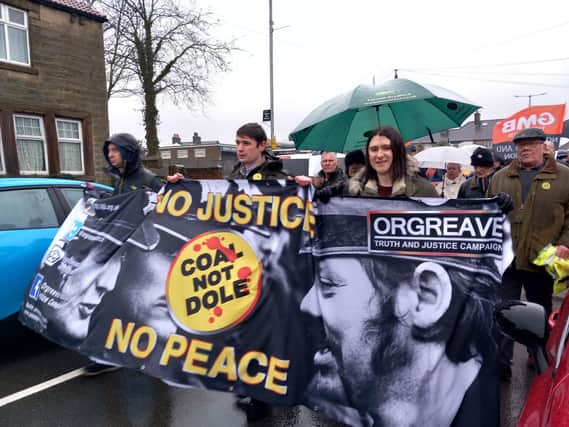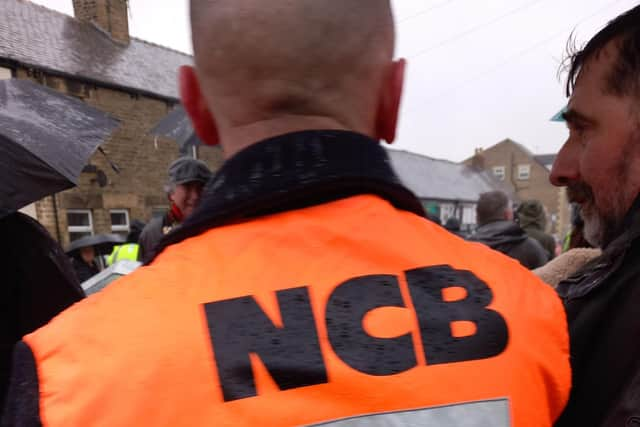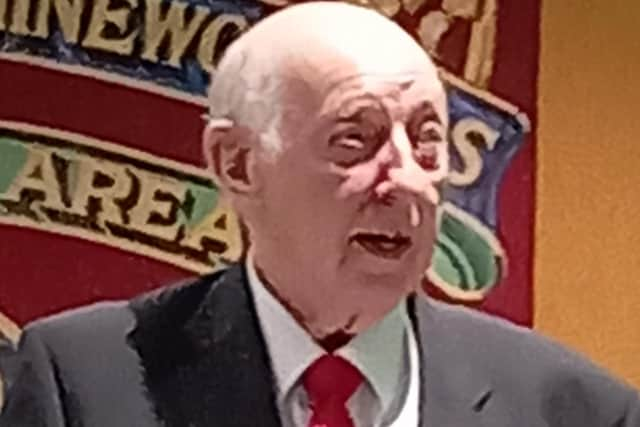Scargill's bombshell revelations 40 years on from the miners' strike


According to Mr Scargill, now aged 86 and no longer involved with the union, a resolution to the dispute was negotiated between the NUM and the National Coal Board on five separate occasions - but each time the agreement was overruled by Prime Minister Margaret Thatcher.
He also claimed that after the dispute ended, he was approached by a man who had been at the notorious “Battle of Orgreave” and who identified himself as a “military serviceman” dressed in police uniform.
Advertisement
Hide AdAdvertisement
Hide AdIf correct, that would confirm a widely-circulated rumour that troops were used alongside police in the clash, which left many miners hospitalised and others facing serious criminal charges which were later exposed as trumped-up, and dropped at court.


Mr Scargill was speaking at a rally to mark the 40th anniversary of the dispute, which started when NCB plans to close Cortonwood colliery in Rotherham were announced.
The strike spread and involved much of the country, becoming increasingly acrimonious, with the flashpoint coming at the Orgreave coking plant June 1984, when many miners believe they were set up by “friendly” police before being subjected to unprecedented levels of violence.
Mr Scargill told an audience of hundreds of former miners and supporters he believed increased picketing after the carnage at Orgreave would have brought the strike to an end by starving the vital steel industry of fuel.
Advertisement
Hide AdAdvertisement
Hide Ad“If picketing had been increased after June 18 the outcome would have been different,” he said.


“The possibility of troops being brought in was a real threat.”
After the strike, he fell into conversation with a man who introduced himself as having been at Orgreave.
When questioned by Mr Scargill about his credentials, he said he was “on the other side” and continued: “I was in the armed forces, but had to dress as police officers.”
Advertisement
Hide AdAdvertisement
Hide AdMr Scargill said that confirmed: “It was a state attack, an organised attack on the trade union movement.”
The clash at Orgreave involved miners dressed in T-shirts - some used later to bandage wounds - while police opponents had helmets, batons and horses. “It was vicious. It was brutal and, of course, it was unlawful,” he said.
He also revealed the strike could have been settled through negotiation much earlier than the return to work in March 1985.
“We settled the miners’ strike five times. Every time we reached an agreement, Thatcher intervened,” he said.
Advertisement
Hide AdAdvertisement
Hide AdHe went on to debunk the long-standing criticism that the NUM never held a national strike ballot, stating that the union had voted to take action on an area-by-area basis, and also challenged the assumption that spring was the wrong time to start industrial action in the energy sector.
An overtime ban had been in place since November 1983, effectively forcing the use of stockpiled coal by power stations.
During his address on the “magnificent dispute” he paid special tribute to the roles played by wives and families of striking miners, who not only organised soup kitchens, but went on to hold their own demonstrations.
Without them, the strike could not have lasted so long, he said.
*See tomorrow’s Dearne Valley Weekender for more from Scargill